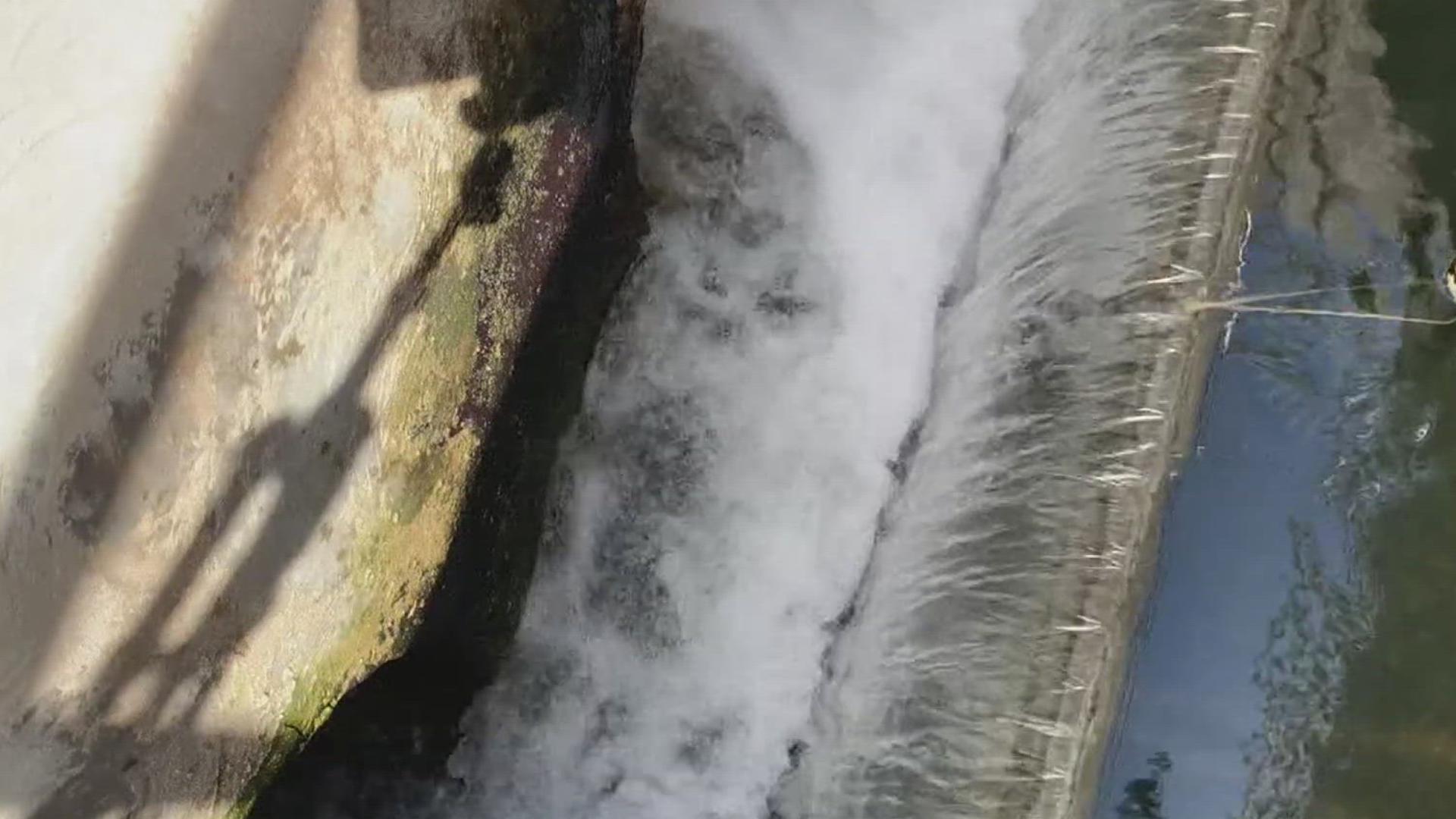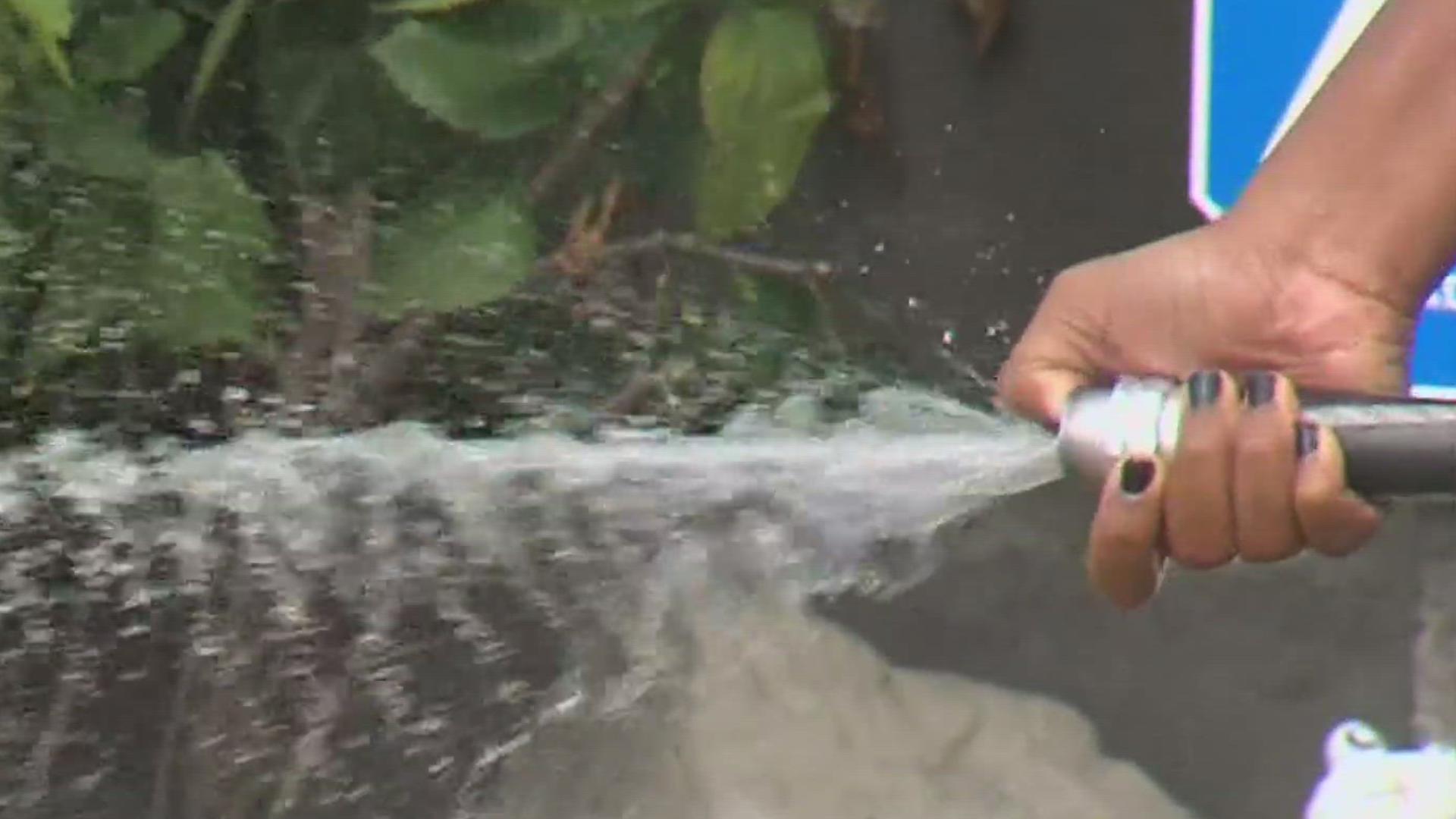CORPUS CHRISTI, Texas — The Coastal Bend is nearing the 20% combined lake level threshold and Stage 3 water restrictions.
The City of Corpus Christi uses the combined capacity of Lake Corpus Christi and Choke Canyon Reservoir to determine water restriction stages.
Combined lake levels currently sit at 21.01%, according to Nueces River Authority data. The trend today is a decline of 1.97% per month. At that monthly rate, combined lake levels could be below 20% in less than a month.
Corpus Christi Water Chief Operating Officer Drew Molly said that the City increased the flow of the Mary Rhodes Pipeline to add to the water supply. The pipeline now moves 55 million gallons a day after previously only moving 40-42 million gallons per day.
Molly said that the city made that decision after learning about the condition that the pipeline was in.
"As a result of those decisions that were made, we've brought in a billion gallons of additional water down the Mary Rhodes Pipeline," Molly said. "Really the conversation that we've been having over the last six months, and it's going to continue on, is how do we get more water to the city."
Molly said that bringing in more water can help Corpus Christi avoid entering Stage 3 water restrictions.
He explained that the City is trying to leverage existing infrastructure. Since the Mary Rhodes Pipeline was designed to be a 75 million gallon per day pipeline, he said that Corpus Christi Water is planning to increase water flow to that number in the spring.
"What we're really trying to do is we're trying to make sure that the community has the water that they need so we don't necessarily have to worry about going into additional water restrictions," Molly said.
Molly said that continuing to bring additional water from Colorado and Lake Texana could prolong tighter water restrictions. While moving to Stage 3 might still happen, he stressed that Corpus Christi Water is working hard to make sure that additional water supplies are leveraged. He added that groundwater potentially could be used for Corpus Christi's water supply.
He said that he appreciates the community's effort to conserve water.
"We're going to continue to ask the community to do their part, which they have done a great job, and ultimately, we've got the short-term supplies that we're bringing in," Molly said. "Of course, we also have longer-term supplies."
Molly explained that a long-term supply could be desalination. He said that the EPA weighed-in on the city's desal permits about a month ago—determining a minimal environmental impact related to building and implementing the Inner Harbor desalination plant.
"We recognize that we have to do the environmental due diligence to get it right, and so the permits continue to move forward," Molly said.
Molly said that the City of Corpus Christi is expecting to have all of the needed permits in 2025. He added Kiewit should be contracted to start the desalination project design in early December.
However, it could be years before Corpus Christi would be able to utilize a desalination plant.


